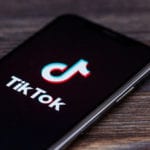The pandemic has caused more than a few sectors to pivot. Why not influencers? With travel and leisure destinations largely off the radar, influencers increasingly are working with the public sector, education organizations and social causes. The goal in most cases is to promote awareness of health and other messages.
Social Media & SEO


AMEC Summit is Virtual Yet Vital as Macnamara Tackles Misinformation
July 8th, 2020 by Seth ArensteinThe start of the AMEC Global Summit featured a terrific talk from well-known academic Jim Mcnamara. The Australian professor highlighted research from his new book, which looked at misinformation in various forms. A multi-faceted approach is needed to combat the scourge, he said.

Everything PR Pros (and Brands) Need to Know About Deepfakes
July 6th, 2020 by Ellen HuberUsing AI to create realistic but deceitful video content, known as a deepfake, is rapidly moving into the business world. As such, communicators need to know how to recognize and combat deepfakes to protect their business and the brands they represent. Kglobal’s Ellen Huber offers tips and tactics.

Vanilla Ice, Airlines Need to Read the Room via Social Listening
July 2nd, 2020 by Nicole SchumanIt’s understandable that some want a break from the constant barrage of social media. But for brands and celebrities, spending more time engaging in social listening might be appropriate, particularly before making big decisions and announcements. Reading the room is basic PR.

How to Employ Influencer Marketing During the Pandemic
July 1st, 2020 by Allison Fitzpatrick and Paavana KumarIs this pandemic moment the right time to initiate an influencer campaign? Influencer marketing certainly has pain points, yet this might be an ideal time, argue Allison Fitzpatrick and Paavana Kumar of Davis & Gilbert LLP. Here are their content and regulatory tips to bolster influencer success.
Don’t Believe Your Eyes: Deepfakes Could Haunt PR Soon
July 1st, 2020 by Sophie MaerowitzDeepfakes, or Artificial Intelligence-generated synthetic videos, have been on the crisis communications periphery since 2017. Here’s what you and those you represent need to know about them.

Former Brand Communicator: ‘I Lied’ While Working at Cigna
June 26th, 2020 by Seth ArensteinIt is rare when someone publicly admits they’ve lied. Rarer still is when a former PR pro does so. That’s why healthcare activist Wendell Potter’s tweet thread about his deceptions while a Cigna VP got our attention. At the moment, only Potter’s version of the story is out there. Cigna and others aren’t speaking.

Are Employees’ Social Media Posts Still PR’s Problem to Solve?
June 25th, 2020 by Sophie MaerowitzIt may seem like conversations on social media couldn’t possibly get more polarized. But in the face of a pandemic and plummeting economy, during an election year no less, brands continue to find themselves caught in the middle of hot-button issues, forced to choose sides on topics previously thought to be outside their wheelhouse. As they address the possibility of employees going rogue on social, communicators should find recourse in the law, internal policy and strategy.

[VIDEO] FINN Partners’ Justin Buchbinder Talks Facebook Boycott, Pride
June 25th, 2020 by PRNEWSPRNEWS talked to Justin Buchbinder, social media director at FINN Partners and longtime PRNEWS source and speaker, about brands’ boycott of Facebook advertising in July, Pride 2020 on social, and social media features he’s excited about.

Study Suggests TikTok May Not Be a Safe Space for Brand Communications
June 24th, 2020 by Sophie Maerowitza new study from University of Haifa in Israel found that TikTok is fast becoming a cache of extremist sentiment and hate speech. The study, conducted from February through May 2020, revealed far-right extremist content promoting fascism, racism, anti-Semitism, chauvinism and xenophobia, researchers said. From encouraging violence to promoting conspiracy theories and glorifying terrorist organizations, the 200 posts studied mirror the harmful content that Facebook, Twitter, YouTube and others have been grappling with for years.


